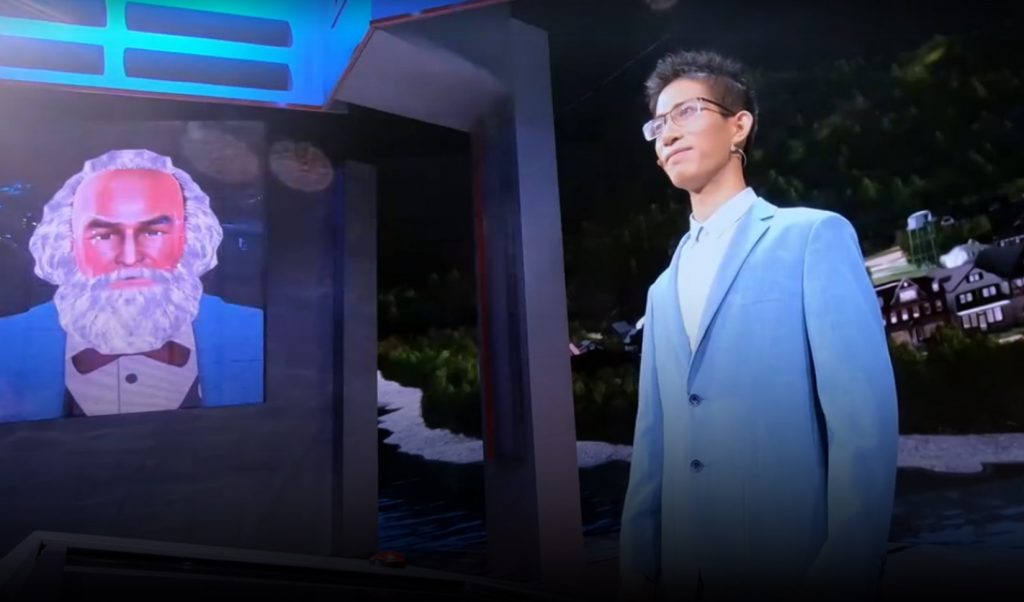Second season of ‘Socialism Is a Bit Cool’ marks the first time any program has made the Chinese president’s life, philosophy, and policy its focal point.
Just in time for the National Day holidays in the first week of October, one of China’s largest television networks has debuted a new quiz show about the life and philosophy of President Xi Jinping.
The first episode of “Socialism Is a Bit Cool: Studying Xi in the New Era” was broadcast at 7:30 p.m. Sunday on Hunan TV. Launched in October 2017, the show is now in its second season — though this year’s iteration marks the first time any program in China will focus explicitly on Xi’s teachings.
While the first season of “Socialism Is a Bit Cool” revolved around panel discussions, the second season has opted for a more interactive format: a quiz show. Participating contestants are teachers and university students from the country’s top academic institutions, such as Peking University. The studio audience of around 100 viewers from all walks of life participate alongside the contestants, too: The point value of a contestant’s question is affected by the proportion of audience members who answer correctly.
In the first episode, a humanoid robot tried to stump the contestants with a barrage of questions about Communist Party theory and history. Examples included: Which of the following sentences is from “The Communist Manifesto”? Who first translated the tome to Chinese? (In recent years, China’s love affair with Marxism has extended to podcasts, virtual reality, and even hip-hop.)
Apart from knowledge of Marx and communist theory, contestants were also grilled on Xi’s life and works. When Xi was sent “down to the countryside” of Shaanxi province as an educated youth during the Cultural Revolution, what book did he walk 15 kilometers to borrow? (Goethe’s “Faust.”) What was the subject of his reform policy when he was stationed in Hebei? (Developing tourism.) In another segment of the show, participants were asked to interpret Xi’s words, and name the source of inspiration behind some of his most famous oratorical anecdotes. Read the full article here.
– This is original content by Sixth Tone and has been republished with permission.







